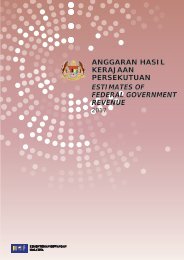WEALTH
2c0esX1
2c0esX1
Create successful ePaper yourself
Turn your PDF publications into a flip-book with our unique Google optimized e-Paper software.
FOCUS<br />
Compliance has improved and it has become harder to<br />
cheat on air pollution data.”<br />
Others can look to China for guidance on how to<br />
improve, adds Zhang. “India has the worst air pollution in<br />
the world and is at an earlier stage of development, but it<br />
can learn from China.”<br />
The prospect of fewer new coal-fired power stations<br />
across the region than expected, an increase in energy<br />
efficiency and renewable power generation look as though<br />
they could have the potential to meaningfully<br />
reduce the expected rate of growth in<br />
particulate-generating electricity sources. The<br />
rapid uptake of automation may also offer<br />
significant scope to mitigate the effects of poor<br />
air quality and heat stress on workers. Ever<br />
cleaner low- and no-tailpipe emissions<br />
vehicles offer another promising trend.<br />
TALENT WILL FLEE SMOG<br />
A move away from other sources of particulates is urgent,<br />
says Matthew E. Kahn, a professor of economics at the UCLA<br />
Institute of the Environment and Sustainability, and author<br />
of the book Climatopolis. “Particulate matter exposure is<br />
deadly,” he explains. “There needs to be a transition away<br />
from burning low-quality fuels such as wood, dung and<br />
coal, and moving up the energy ladder to natural gas. This<br />
requires major investments in infrastructure.”<br />
» INDIA HAS THE<br />
WORST AIR<br />
POLLUTION IN THE<br />
WORLD «<br />
Turkey’s wider adoption of natural gas highlights the<br />
benefits of such a transition, he says, resulting, for example,<br />
in a significant decrease in the rate of infant mortality.<br />
Asian nations that fail to reverse these trends and to tackle<br />
the effects of a warmer climate will suffer a range of bad<br />
long-term health and economic outcomes.<br />
The most polluted cities and regions will see talent<br />
migrate to places where air quality is better and where the<br />
infrastructure and institutions exist to mitigate the more<br />
extreme air quality and heat problems,<br />
explains Kahn.<br />
“Richer cities have an edge in adapting to<br />
climate change. Singapore, for example, faces<br />
relatively little risk from climate change.<br />
Indoor productive activity is protected from<br />
the heat, due to air conditioning, and much<br />
other natural disaster risk.”<br />
The regions that pursue low-end, poorly regulated<br />
manufacturing, on the other hand, will suffer the most<br />
from these negative trends, says Kahn.<br />
The mobility of talent makes addressing these issues<br />
urgent for every city and region, agrees Zhang. “Air<br />
pollution has already incentivized many rich people to<br />
move countries. The costs of this are tangible. Where<br />
people go, the business goes and so the money goes. This<br />
has a long-term impact. You need a good environment to<br />
attract and keep talent.”<br />
30 • Allianz<br />
Heavy pollution<br />
of Indonesian rivers<br />
from household<br />
waste and industry<br />
threatens the health of<br />
millions of people



